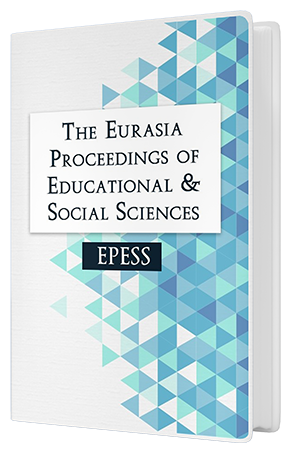MOROCCAN TEACHERS’ CONCEPTIONS ON FOOD EDUCATION
Keywords:
Food Education, Conception, Didactic transposition, Teacher, Promotion of health, Biomedical approachAbstract
Food education is a component of health education which plays an important role in the development of citizenship and human resources of a country (Jourdan, 2010). School is a vital element in implementing some positive behavior and making students drop out other dangerous behaviors. Today educating students to healthy nutrition allows them to develop the abilities to act, choose, decide on an autonomous and responsible manner and capacity face reality and deal with conflict (Jourdan, 2010). Food is present in our daily lives and in our curricula but the problem lies in the manner/ way in which it is processed, hence the importance of this study. And as the teacher constitutes a strong link of the didactic transposition, he may influence this transposition by his conceptions, values and practices (Clément, 2004). In this context, we are interested in this study to identifying the teacher’ conceptions about food education, and answering the following question: - What are the Moroccans teachers’ conceptions about food education? We have thus used as a tool of investigation in the form of a questionnaire administered to 200 teachers at all grade levels. The conception of Moroccan high-school teachers towards food education is more often expressed by implementing the Promotion of Health (HP) approach, while those at primary and middle school adopt a Biomedical approach (BM) in their definitions. This could be in relation to each grade level teachers’ educational background of each level school.Downloads
Published
Issue
Section
License
Copyright (c) 2016 The Eurasia Proceedings of Educational and Social Sciences

This work is licensed under a Creative Commons Attribution-NonCommercial-ShareAlike 4.0 International License.
The articles may be used for research, teaching, and private study purposes. Any substantial or systematic reproduction, redistribution, reselling, loan, sub-licensing, systematic supply, or distribution in any form to anyone is expressly forbidden. Authors alone are responsible for the contents of their articles. The journal owns the copyright of the articles. The publisher shall not be liable for any loss, actions, claims, proceedings, demand, or costs or damages whatsoever or howsoever caused arising directly or indirectly in connection with or arising out of the use of the research material. All authors are requested to disclose any actual or potential conflict of interest including any financial, personal or other relationships with other people or organizations regarding the submitted work.




